Is Orange Juice Good For Your Kidneys?
Many people like to enjoy a fresh glass of orange juice with breakfast. Its citrusy nature can be the wake up call some need to start their day.
While orange juice is known to provide many nutritional benefits, can you still enjoy your morning OJ once you’ve been diagnosed with chronic kidney disease and given a renal diet to follow? You may also find that you want to view this renal diet education handout.
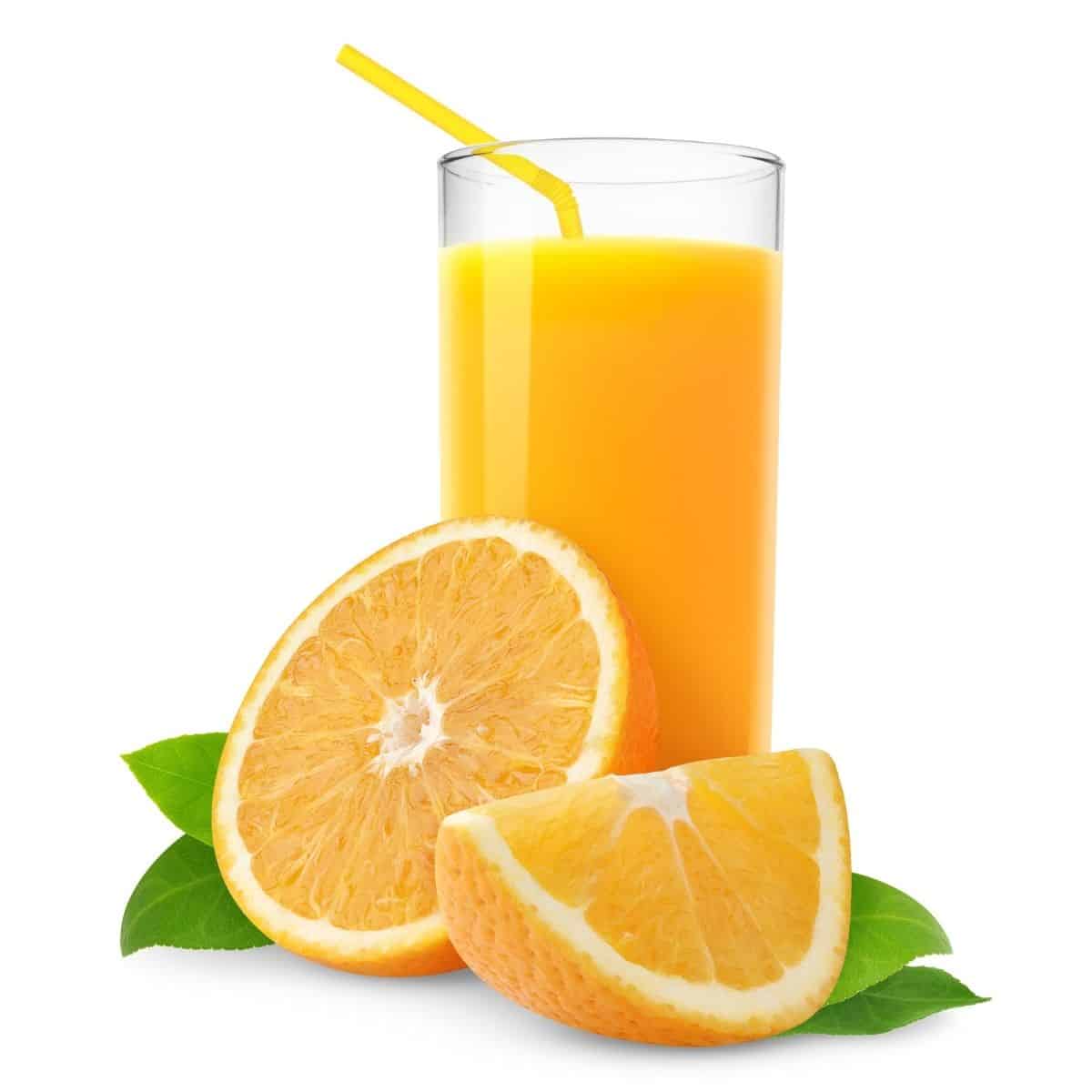
The nutritional benefits – and potential dangers – of orange juice differ based on how the juice is prepared. For this article, we will look at raw, freshly-squeezed orange juice.
While it has very little fat and calories, one cup of orange juice does contain over 450 mg of potassium. It can also be high in sugar, at about 20 g per cup. These two ingredients alone can make it dangerous for those suffering from CKD.
What juices are good for kidney disease? In this article, we'll go into further detail on why orange juice is bad for kidney disease and we will also provide insights on kidney-friendly alternatives to incorporate into your diet.
For More Recipes and Ideas --->> Get Your Free Meals and Recipes That Are Perfect for Pre-Dialysis Diets, Pre-Dialysis with Diabetes, or Dialysis Diets.
Jump to:
Nutritional Content of Orange Juice
On the positive side, orange juice is an excellent source of vitamin C. A single cup of orange juice contains approximately 124 milligrams of vitamin C, which is more than the recommended daily intake for most adults.
Vitamin C is a powerful antioxidant that helps to protect the body against damage from free radicals. It is also important for immune function, wound healing, and collagen production. Consuming orange juice can help to boost your vitamin C intake and support overall health and well-being.
In addition to vitamin C, orange juice is also a good source of folate, which is required by the body for making healthy red blood cells. A single cup of orange juice contains approximately 44 micrograms of folate, which is about 11% of the recommended daily intake for most adults.
Other important nutrients in orange juice include thiamin, vitamin A, calcium, and magnesium. Thiamin is another B-vitamin that is important for energy metabolism and nerve function, vitamin A is important for healthy vision and immune function, while calcium is important for healthy bones and teeth.
However, on the negative side, orange juice contains high potassium levels, which is a mineral that should be restricted in kidney disease. A single cup of orange juice contains approximately 496 milligrams of potassium. Kidney patients on potassium-restricted diets are advised to limit potassium to less than 2,000 milligrams per day.
Overall, orange juice typically offers a wide variety of health benefits; but its high level of potassium means that it's better to look for other alternatives if you're following a kidney diet. Check out even more info on a low potassium diet for kidney disease.

Orange Juice Benefits
Vitamin C Content
Vitamin C is a powerful antioxidant that offers numerous health benefits, including supporting the immune system, promoting healthy skin, and also aiding in the absorption of iron. However, one lesser-known benefit of vitamin C is its potential positive impact on kidney health.
The Vitamin C content found in orange juice can also help reduce inflammation throughout the body and particularly within the kidneys.
In addition to providing antioxidant protection from free radicals, this essential nutrient reinforces cell integrity by strengthening blood vessels and protecting against kidney damage and infection. Vitamin C also promotes the absorption of iron, which can also be helpful for people with anemia.
However, keep in mind that this doesn’t mean that orange juice is safe for renal patients. Orange juice should only be consumed by kidney patients in moderation and only after consulting your doctor or your dietitian.
Folate Content
Orange juice is a rich source of folate, also known as vitamin B9. One of the key benefits of folate is that it supports cell growth and development, particularly during periods of rapid growth such as pregnancy and infancy.
Adequate folate intake is crucial for preventing neural tube defects in developing fetuses, which can lead to serious birth defects of the brain and spine.
Folate also plays a role in brain function and mood regulation. It is involved in the production of neurotransmitters, which are important for brain function. Folate is also important for immune function.
It is necessary for the production and function of white blood cells, which are crucial for a healthy immune system. Some studies have also suggested that folate may help to reduce the risk of certain cancer, such as colon and breast cancer.
While orange juice can be a good source of folate, it's important to note that it should not be relied upon as the sole source of this nutrient.
A balanced and varied diet that includes other folate-rich foods, such as leafy greens, legumes, and fortified cereals is recommended to ensure adequate intake of this important mineral. You can also eat low potassium cereals!
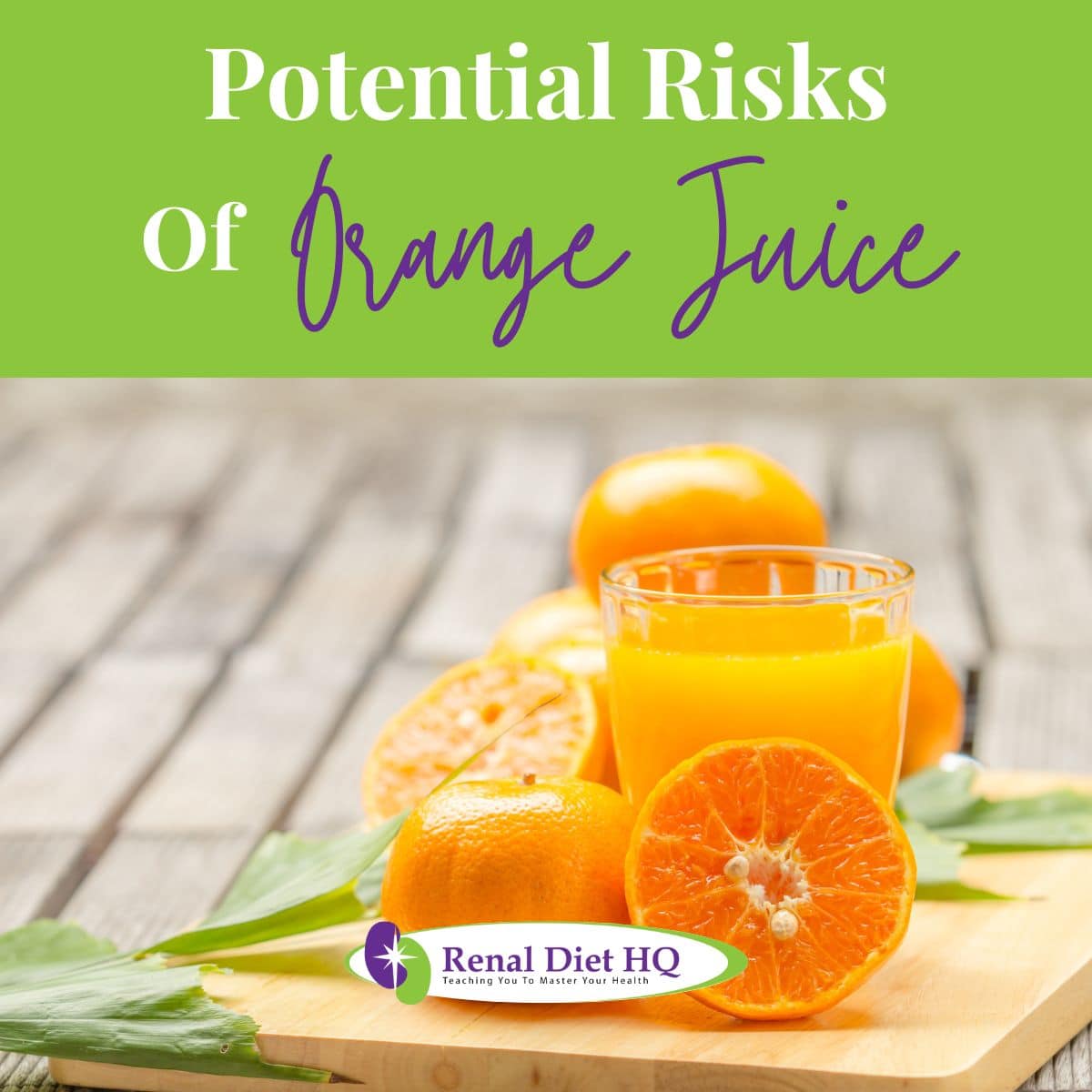
Potential Risks Of Orange Juice
Now that we have discussed the benefits of orange juice, let’s move on to its dangers. Orange juice is not a good choice for individuals with kidney disease because it contains high levels of potassium. Moreover, orange juice is high in sugar and acidic content.
Excess sugar can also cause a whole slew of health problems, including diabetes and weight gain (menu plans for renal diabetes diet). The acidic content of orange juice can also be damaging to the bladder and gastrointestinal tract if consumed in large quantities. Let’s discuss all these risks in further detail.
Potassium Content
Orange juice contains a high level of potassium. While potassium is an essential mineral that plays a crucial role in various bodily functions, including regulating blood pressure and supporting muscle and nerve function, it can be harmful to individuals with kidney disease.
Healthy kidneys are responsible for filtering excess potassium from the blood and excreting it through urine. However, when the kidneys are not functioning properly, potassium can build up in the blood, leading to a condition called hyperkalemia. Check out these tips for following a pre-dialysis renal diet.
Hyperkalemia can cause several problems like muscle weakness, irregular heartbeat, and even cardiac arrest in severe cases. For this reason, patients with kidney disease are often advised to limit their potassium intake, including reducing their consumption of potassium-rich foods such as orange juice.
It is important for people with kidney disease to consume it in moderation and under the guidance of a healthcare professional.
Excess Sugar
For individuals with kidney problems, consuming too much sugar can be particularly harmful. Orange juice, while a nutritious beverage, is high in sugar and can contribute to a variety of health problems for kidney patients. This is why it's vital to read labels carefully as a kidney patient.
One of the most significant harms of excess sugar intake for kidney patients is an increased risk of developing type 2 diabetes. Kidney patients are already at an increased risk of developing diabetes, and consuming too much sugar can further increase this risk. Diabetes can further damage the kidneys and lead to a variety of health problems.
Another harm of excess sugar intake for kidney patients is an increased risk of heart disease. Kidney patients are also at an increased risk of developing heart disease, and consuming too much sugar can contribute to high blood pressure, high cholesterol, and other risk factors for heart disease.
Finally, consuming too much sugar can contribute to the worsening of kidney function in individuals with kidney problems. High blood sugar levels can damage the blood vessels in the kidneys and lead to further kidney damage.
Acidic Content
Now that we've discussed the potential risks of orange juice due to its high sugar content, let's move on to another: acidic content. OJ does contain citric acid, which gives it a tart flavor, but can also be problematic for our health in large amounts.
The acidic nature of orange juice can cause irritation and inflammation in the kidneys, leading to further damage and complications.
When the kidneys are not functioning properly, they are unable to effectively regulate the body's pH levels.
This can result in an accumulation of acid in the body, which can lead to a condition known as acidosis. Consuming acidic foods and beverages, such as orange juice, can exacerbate this condition and cause further harm to the kidneys.
If you are struggling with how to start your day off without acidic foods and beverages, then check out this podcast on starting your day off healthy.
Water Overload
Keep in mind that you will likely have fluid restrictions once you are diagnosed with chronic kidney disease. All liquids should be included, including juices, ice cubes and soups you consume.
Because of this, you may want to limit your juice intake so you can have plenty of water while not overdoing your fluid restrictions (fluid restriction guidelines for CKD).
Kidney failure patients on dialysis often need to limit their fluid intake to prevent fluid overload and swelling. Drinking too much orange juice, can contribute to excess fluid intake and upset your fluid balance.
General Tips For Better Kidney Health
When it comes to kidney health, physical activity and lifestyle changes are just as important as dietary modifications.
Proper water intake is essential for flushing out toxins from the body that could potentially lead to further complications.
Making positive dietary adjustments such as reducing table salt or sugary foods, and eating more fiber-rich fruits (how much starfruit is toxic) and vegetables can help keep your kidneys healthy too!
Whether you have diseased kidneys or not, it's always beneficial to take care of yourself by listening to your body and staying hydrated! Check out this list of fluids to hydrate with kidney disorder.
Exercise
Regular exercise can help the kidneys function properly by increasing blood circulation throughout the body, while also helping reduce any swelling associated with chronic kidney disease.
Another benefit is that exercise can help to improve cardiovascular health. Cardiovascular disease is a common complication of renal disease, and regular exercise can help to reduce the risk of developing this condition.
Exercise can also help to lower blood pressure, which is another common complication of renal disease. Learn how to exercise for a healthy heart.
In addition to its cardiovascular benefits, exercising can also help to improve muscle strength and flexibility.
This can be particularly important for renal patients, as they may experience muscle weakness and stiffness as a result of their condition. By engaging in regular exercise, renal patients can maintain their muscle mass.
Last but not least, exercise can help to improve mental health and well-being. Renal disease can be a challenging condition to manage, and it can take a toll on a person's mental health.
Exercise has been shown to be an effective way to reduce stress and anxiety, improve mood, and enhance overall quality of life.
Hydration
Kidney health is heavily dependent on how well you take care of your body. Hydration plays an important role in this equation, and it’s essential for keeping our kidneys functioning properly.
Drinking plenty of water and kidney friendly drinks can help flush out toxins from the body, while also reducing any swelling or inflammation associated with chronic kidney disease.
If plain water isn't your thing, there are other liquid alternatives like juice or herbal teas to choose from. You should still be mindful of your sugar intake though!
Keeping up with healthy exercise habits in tandem with proper hydration will go a long way towards maintaining good renal health. It's time to start making some positive changes in our dietary and lifestyle choices so we can keep our kidneys working optimally!
FAQs for Consuming Orange Juice on a Renal Diet
Drinking orange juice can have potential risks for those with kidney disease, so reducing intake and consulting your physician is advised.
Orange juice has a high amount of vitamin C but also contains high levels of potassium compared to other juices, such as cranberry (is cranberry good for kidneys?) or grapefruit.
If you choose to drink it, pay attention to how much you are consuming and look into alternatives that may be more beneficial for persons with kidney disease.
Ultimately, whatever decision you make should be discussed with a doctor who knows your medical history in order to keep your kidneys healthy.
Even if you can’t have orange juice on your kidney diet, there are other fruit juices you may be able to enjoy.
Apple Juice: Is apple juice good for kidneys? This is a great substitute for orange juice. It contains less potassium compared to citrus fruits so it’s not a danger to your kidney health.
Cranberry Juice: Another option when you need an orange juice substitute is cranberry juice. Plus, cranberries are packed with a number of healthy antioxidants that can help regulate blood pressure and cholesterol.
It can also assist the kidneys in functions better to remove wastes from the body.
Lemon Juice: Not all citrus juices contain high amounts of potassium. Lemon juice can be a great option for kidney patients as it is low in potassium and phosphorus.
Additionally, lemon juice may have some health benefits for kidney patients, such as reducing the risk of kidney stones.
When picking other juices, it is important to check the food labels for potassium and phosphorus and to make sure to stick to your daily allowance of these minerals.
On the positive side, orange juice is a good source of vitamin C and antioxidants, which can support overall health and immune function.
However, orange juice is also high in potassium, which can be harmful to individuals with kidney disease who have potassium restrictions.
Consuming excess potassium can lead to hyperkalemia, a condition that can cause muscle weakness, irregular heartbeat, and even cardiac arrest in severe cases.
Therefore, individuals with kidney disease who have potassium restrictions may need to limit their intake of orange juice and other high-potassium foods and drinks. Give these tips for a low potassium diet a try!
In addition to its high potassium content, drinking orange juice can also have other negative side effects on renal patients. Orange juice is acidic, which can irritate the bladder and worsen symptoms of urinary tract infections (UTIs).
Furthermore, orange juice is high in sugar which can cause more damage to your kidneys and can also contribute to weight gain and increase the risk of developing diabetes and other chronic conditions.
Therefore, while moderate consumption of orange juice may have some beneficial impacts on your overall health when enjoyed responsibly, it is best to limit intake in order to avoid any potential risks associated with long-term use.
Orange juice is generally not considered a major risk factor for kidney stones. In fact, some studies have suggested that drinking orange juice may actually help reduce the risk of kidney stones.
Kidney stones are formed when minerals and other substances in the urine crystallize and form solid masses.
The most common type of kidney stone is made of calcium oxalate. Some people are more prone to developing kidney stones due to factors such as genetics, diet, and certain medical conditions.
While orange juice does contain oxalate, which is a substance that can contribute to the formation of kidney stones, the amount of oxalate in orange juice is relatively low.
In fact, some studies have suggested that drinking orange juice orange juice may actually help reduce the risk of kidney stones by increasing urinary citrate levels, which can help prevent the formation of calcium oxalate stones by reducing calcium's availability to combine with oxalates.
However, despite lowering the risk of kidney stones due to its citrate content, orange juice is still not recommended for people following a kidney friendly diet plan.
Individuals with kidney disease may need to restrict certain foods and drinks to help manage their condition and prevent further damage to their kidneys.
Drinks like orange juice, sports drinks, soda (can soda cause kidney failure?), and energy drinks may need to be limited due to their excess sodium, potassium, phosphorus, and sugar content.
In addition to drinks, there are also certain foods that may need to be restricted on a renal diet. Some examples of food that need to be restricted high-potassium fruits like bananas and avocados.
High-phosphorus foods like dairy products, nuts, and whole grains, and foods with high amounts of salt like processed meats (give these low phosphorus meats a try!), canned foods, and fast food may also need to be limited to help manage blood pressure and prevent fluid retention.
It is important to work with a healthcare professional and a registered dietitian to determine the appropriate dietary restrictions and ensure overall kidney health.
Drinking fruit juices can help keep the body hydrated, which is important for kidney health.
Adequate hydration can help prevent kidney stone formation and improve kidney function. Fruit juices are also a very convenient way to consume a variety of fruits and vegetables.
For example, you could drink a glass of mixed fruit juice to get the nutrients of several different fruits in one serving. On the downside, fruit juices are high in sugar, which can be damaging to the kidneys.
Fruit juices are often low in fiber, which can be a concern for digestive health. Fiber is important for regulating blood sugar levels and improving digestion.
Always make sure to stick to the health goals recommend by your doctor or your dietitian and to avoid extra potassium and extra phosphorus by checking the nutrition labels before picking fruit juices.
Orange Juice Should Be Restricted In Renal Diets
In conclusion, while orange juice is a delicious and nutritious beverage that offers a variety of health benefits, it may not be the best choice for individuals with kidney problems.
It may be best to avoid orange juice and focus on other kidney-friendly foods (try this kidney friendly vegetable dip). and beverages like apple juice or cranberry juice. However, it’s always best to work with a healthcare professional to find out whether you can add orange juice to your diet in moderation.






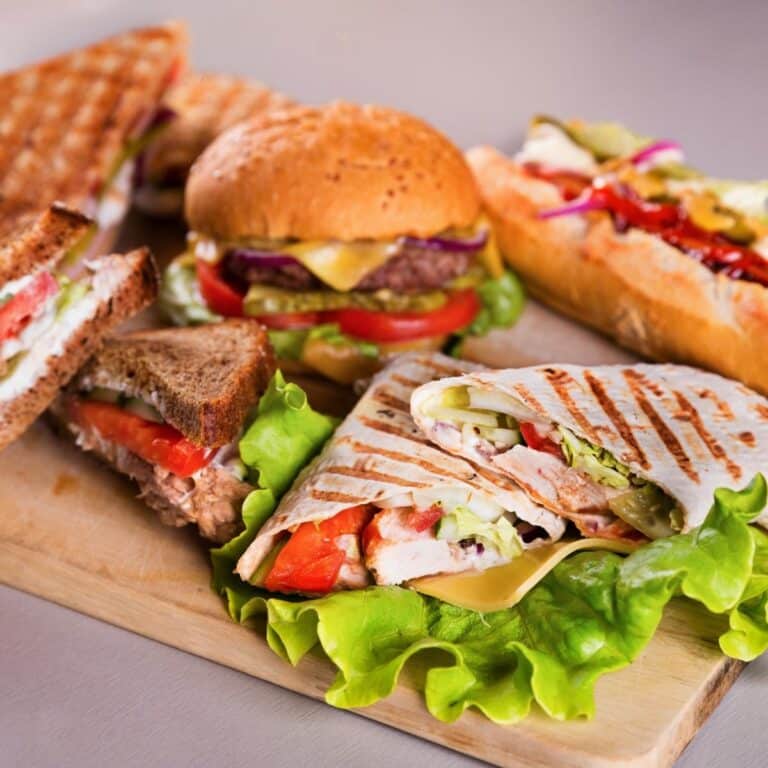
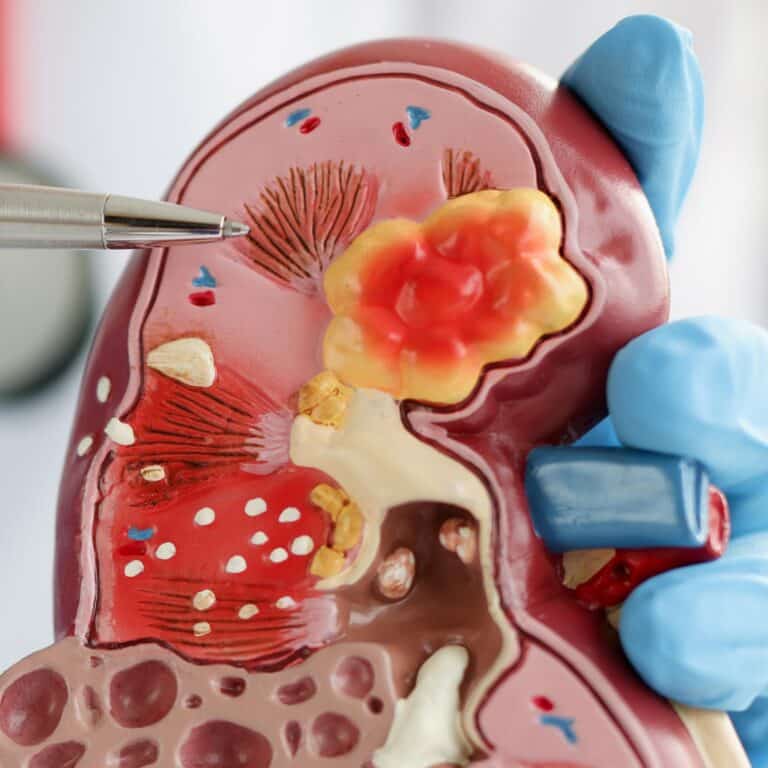
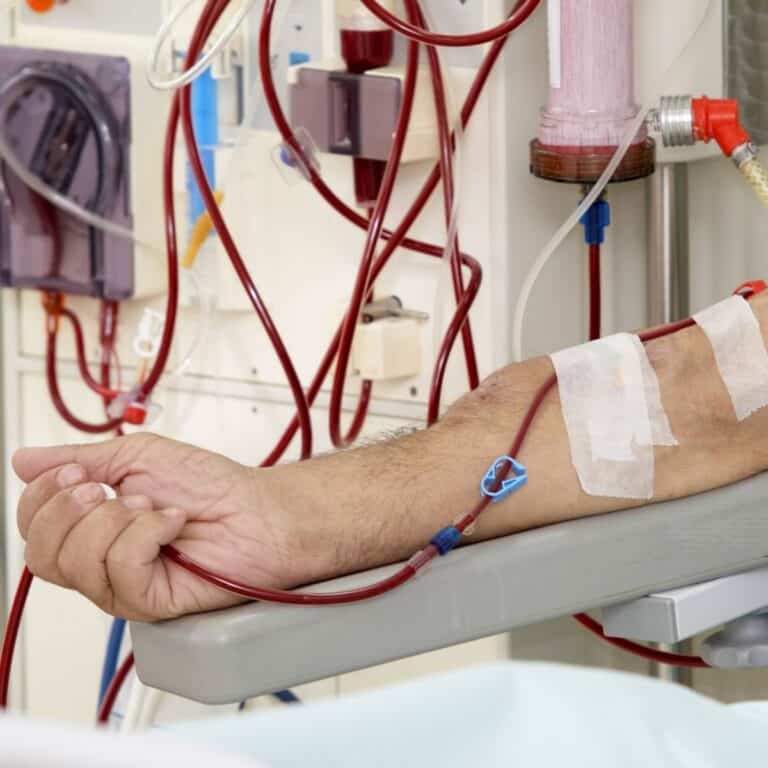

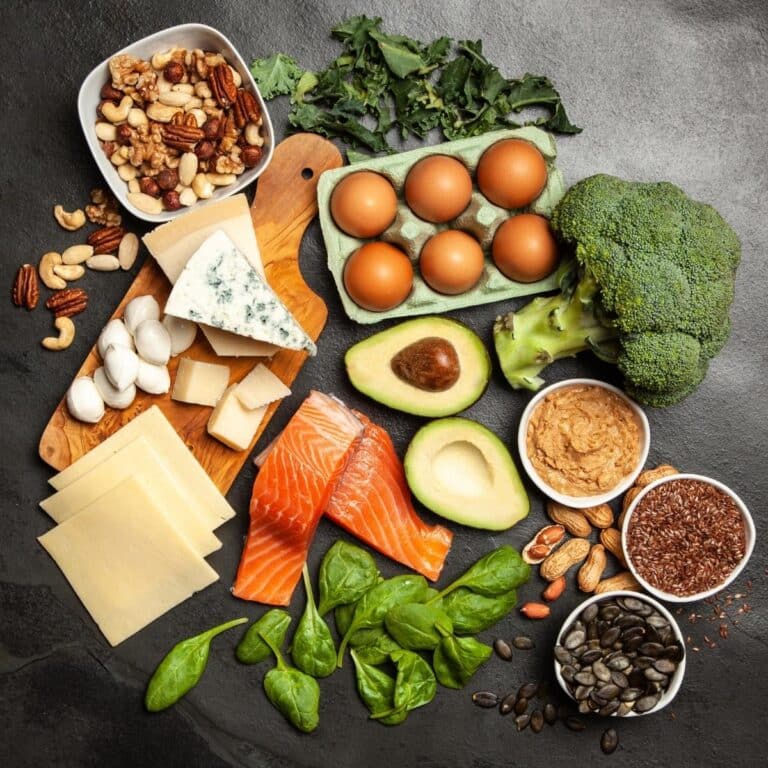






This has opened my eyes to a #of drinks I can have. Very good info. Thanks. More articles should be written like this to the point .